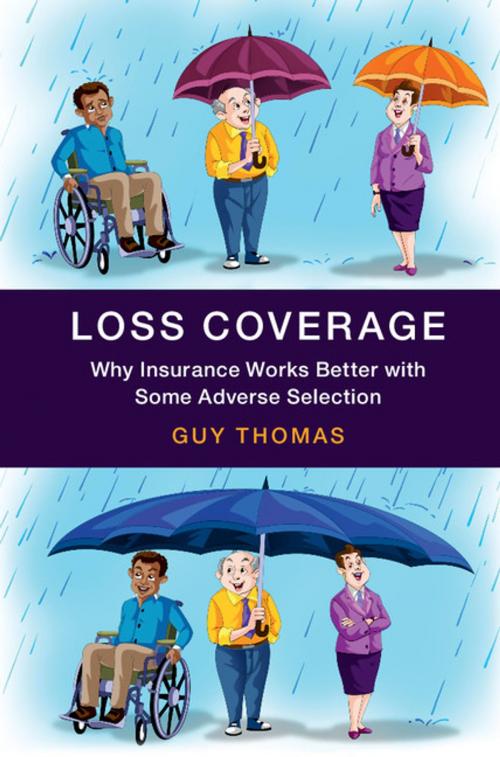Loss Coverage
Why Insurance Works Better with Some Adverse Selection
Business & Finance, Economics, Statistics, Finance & Investing, Finance| Author: | Guy Thomas | ISBN: | 9781108157988 |
| Publisher: | Cambridge University Press | Publication: | May 2, 2017 |
| Imprint: | Cambridge University Press | Language: | English |
| Author: | Guy Thomas |
| ISBN: | 9781108157988 |
| Publisher: | Cambridge University Press |
| Publication: | May 2, 2017 |
| Imprint: | Cambridge University Press |
| Language: | English |
Most academic and policy commentary represents adverse selection as a severe problem in insurance, which should always be deprecated, avoided or minimised. This book gives a contrary view. It details the exaggeration of adverse selection in insurers' rhetoric and insurance economics, and presents evidence that in many insurance markets, adverse selection is weaker than most commentators suggest. A novel arithmetical argument shows that from a public policy perspective, 'weak' adverse selection can be a good thing. This is because a degree of adverse selection is needed to maximise 'loss coverage', the expected fraction of the population's losses which is compensated by insurance. This book will be valuable for those interested in public policy arguments about insurance and discrimination: academics (in economics, law and social policy), policymakers, actuaries, underwriters, disability activists, geneticists and other medical professionals.
Most academic and policy commentary represents adverse selection as a severe problem in insurance, which should always be deprecated, avoided or minimised. This book gives a contrary view. It details the exaggeration of adverse selection in insurers' rhetoric and insurance economics, and presents evidence that in many insurance markets, adverse selection is weaker than most commentators suggest. A novel arithmetical argument shows that from a public policy perspective, 'weak' adverse selection can be a good thing. This is because a degree of adverse selection is needed to maximise 'loss coverage', the expected fraction of the population's losses which is compensated by insurance. This book will be valuable for those interested in public policy arguments about insurance and discrimination: academics (in economics, law and social policy), policymakers, actuaries, underwriters, disability activists, geneticists and other medical professionals.















